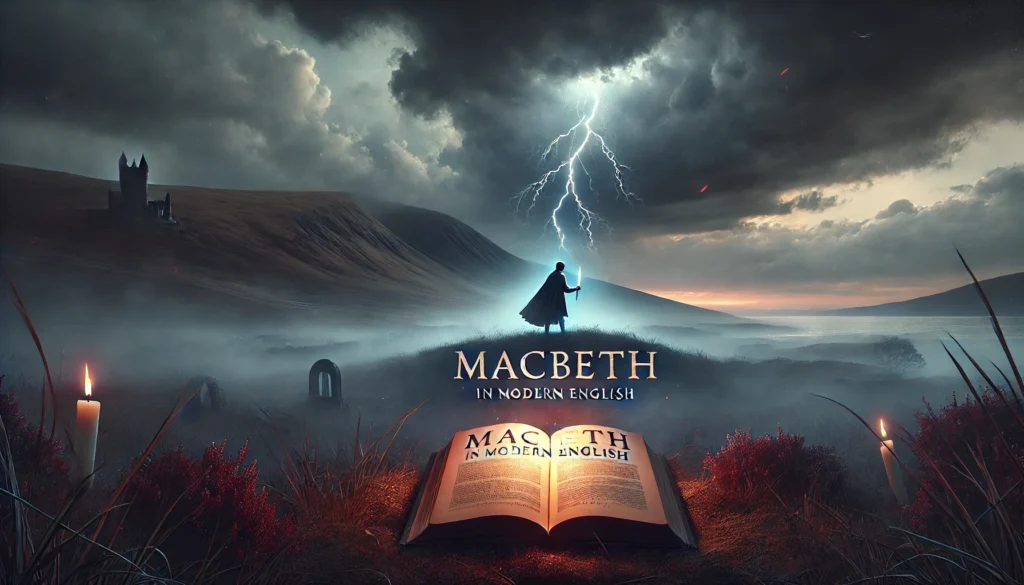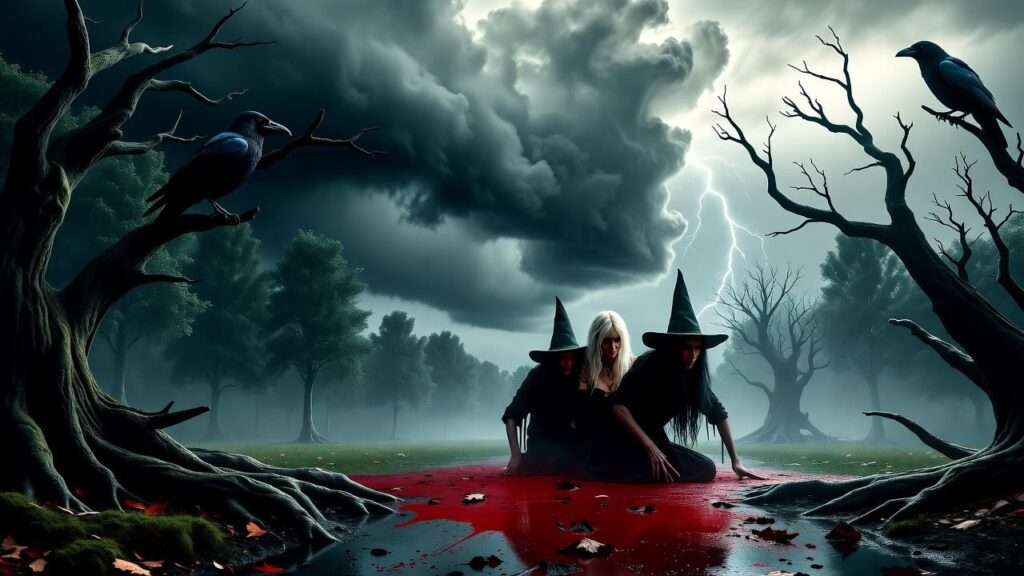Imagine standing at the gates of a grand castle, its towers piercing the sky, yet an eerie chill lingers in the air. In William Shakespeare’s Macbeth, King Duncan’s arrival at Macbeth’s castle is a pivotal moment, rich with dramatic irony and layered meaning. Does Duncan praise Macbeth’s castle, and if so, what does this reveal about the play’s deeper themes? This question strikes at the heart of Shakespeare’s genius, where every word carries weight, and every setting is a character in itself. In this article, we’ll unravel the significance of Duncan’s words, explore the symbolism of the castle, and dissect how this scene foreshadows the tragedy to come.
As a Shakespeare scholar with years of analyzing his works, I’ve seen how seemingly simple moments—like Duncan’s praise—open doors to profound insights. This comprehensive exploration will not only answer whether Duncan praises Macbeth’s castle but also illuminate its role in the play’s themes of ambition, deception, and fate. Whether you’re a student, a literature enthusiast, or a curious reader, this article will deepen your understanding of Macbeth and its enduring relevance.
The Context of Duncan’s Arrival at Macbeth’s Castle
To understand whether Duncan praises Macbeth’s castle, we must first set the stage. In Act 1, Scene 6 of Macbeth, King Duncan arrives at Inverness, Macbeth’s castle, accompanied by his entourage. This moment occurs shortly after Macbeth and Lady Macbeth plot to murder Duncan to seize the throne, spurred by the witches’ prophecy. The scene is steeped in dramatic irony: Duncan, unaware of the treachery awaiting him, steps into the very place where his life will end.
The castle itself, often referred to as Inverness in the play, is not just a backdrop but a symbol of Macbeth’s ambition and moral decay. Shakespeare uses settings deliberately, and Inverness is no exception. It’s described as a place of hospitality, yet it becomes a tomb for Duncan, reflecting the duality of appearance versus reality—a recurring motif in Macbeth. Let’s examine Duncan’s exact words to determine if he praises the castle and what this reveals.
Does Duncan Praise Macbeth’s Castle? The Textual Evidence
In Act 1, Scene 6, Duncan speaks the following lines upon arriving at Macbeth’s castle:
“This castle hath a pleasant seat; the air
Nimbly and sweetly recommends itself
Unto our gentle senses.” (1.6.1-3)
These words confirm that Duncan does indeed praise Macbeth’s castle. He describes it as having a “pleasant seat,” suggesting an inviting and comfortable location. The air is “nimble” and “sweet,” appealing to the senses and creating an impression of tranquility. Duncan’s praise is further reinforced by Banquo, who adds:
“This guest of summer,
The temple-haunting martlet, does approve,
By his loved mansionry, that the heaven’s breath
Smells wooingly here.” (1.6.3-6)
Banquo’s reference to the martlet (a bird associated with peace and divine favor) underscores the castle’s outward charm. The imagery of summer and “heaven’s breath” paints Inverness as a serene, almost idyllic place. Yet, this praise is laced with irony. The audience knows that Macbeth and Lady Macbeth are plotting Duncan’s murder, making the castle a trap rather than a haven.
Why Duncan’s Praise Matters
Duncan’s praise is not merely a polite remark—it’s a masterstroke of Shakespeare’s dramatic technique. By having Duncan extol the castle’s virtues, Shakespeare heightens the tension and underscores the theme of deception. The king’s trust in Macbeth, reflected in his positive comments, contrasts sharply with the betrayal awaiting him. This moment encapsulates the play’s exploration of how appearances can mask sinister intentions, a theme that resonates throughout Macbeth.
Moreover, Duncan’s words establish the castle as a character in its own right. Inverness is both a physical space and a psychological one, embodying the duality of Macbeth’s nature—honorable warrior on the surface, treacherous usurper beneath. The praise also foreshadows Duncan’s fate, as his trust in the castle’s “pleasant seat” mirrors his trust in Macbeth, leading to his downfall.
Symbolism of Macbeth’s Castle in the Play
To fully grasp the significance of Duncan’s praise, we must explore the castle’s symbolic role in Macbeth. Shakespeare often imbues settings with meaning, and Inverness is a prime example. Below, we’ll examine its key symbolic dimensions:
1. A Facade of Hospitality
Duncan’s description of the castle as a “pleasant seat” highlights its role as a facade. On the surface, Inverness is a place of warmth and welcome, where a king is honored as a guest. Yet, beneath this veneer lies a sinister plot. Lady Macbeth herself underscores this duality when she greets Duncan with polished courtesy, saying, “All our service / In every point twice done, and then done double” (1.6.14-15). Her words drip with false sincerity, mirroring the castle’s deceptive charm.
This contrast between hospitality and treachery aligns with the broader theme of appearance versus reality. Just as Macbeth hides his ambition behind loyalty, the castle conceals its danger behind beauty. Duncan’s praise, therefore, serves as a poignant reminder of how easily trust can be manipulated.
2. A Symbol of Ambition
Inverness is also a physical manifestation of Macbeth’s ambition. As his home, it represents his status and power, but it becomes the stage for his moral descent. Duncan’s murder within its walls marks the moment Macbeth crosses the point of no return, setting off a chain of violence that consumes him. The castle, once a symbol of honor, becomes tainted by blood, reflecting Macbeth’s transformation from noble thane to tyrannical king.
3. A Microcosm of Scotland
On a larger scale, Inverness mirrors the state of Scotland itself. Duncan’s praise of the castle’s “sweet” air contrasts with the chaos that erupts after his murder. As Macbeth’s ambition destabilizes the natural order, Scotland descends into turmoil, much like the castle transitions from a place of peace to one of horror. The praise, then, serves as a benchmark for the harmony that is lost, highlighting the consequences of unchecked ambition.
4. A Gothic Element
The castle also evokes Gothic imagery, a hallmark of Macbeth’s dark tone. Its imposing structure, coupled with the eerie events within, creates an atmosphere of foreboding. Duncan’s praise of its pleasantness is almost jarring against the backdrop of the witches’ prophecies and the supernatural elements permeating the play. This contrast amplifies the Gothic tension, making the castle a fitting setting for a tragedy of betrayal and guilt.
Dramatic Irony and Foreshadowing in Duncan’s Praise
Shakespeare’s use of dramatic irony in this scene is masterful. The audience, privy to Macbeth and Lady Macbeth’s plot, knows that Duncan’s trust is misplaced. His praise of the castle’s beauty is ironic because it blinds him to the danger within. This irony is compounded by Banquo’s mention of the martlet, a symbol of peace, which contrasts with the violence about to unfold.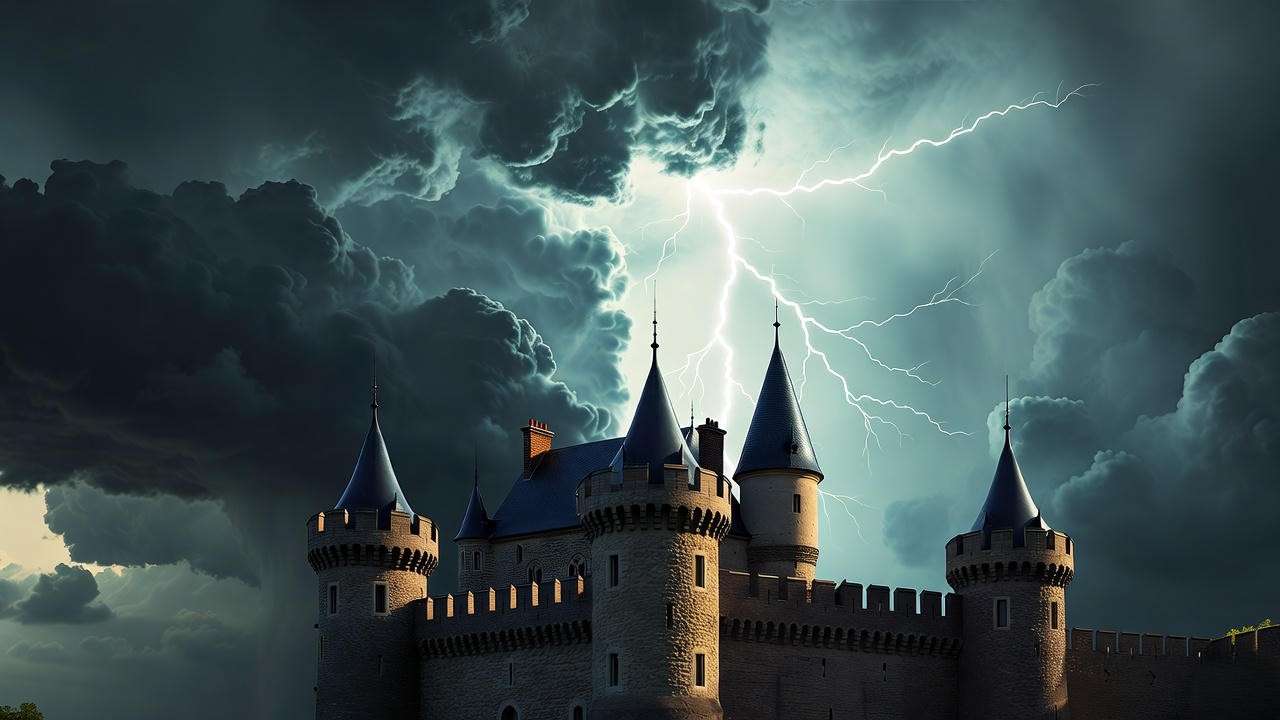
The scene also foreshadows Duncan’s fate. His positive description of the castle lulls him into a false sense of security, making his murder all the more shocking. Furthermore, the praise sets up a recurring motif of inversion in Macbeth. What seems fair is foul, and what appears safe is deadly. This motif echoes the witches’ opening chant, “Fair is foul, and foul is fair” (1.1.11), and permeates the play’s exploration of morality.
The Role of Lady Macbeth in the Castle’s Deception
While Duncan’s praise focuses on the castle, Lady Macbeth is the architect of its deceptive allure. Her role as the perfect hostess masks her ruthless ambition, making her a key player in the scene’s irony. When she welcomes Duncan, her words are carefully crafted to reinforce the castle’s image as a place of safety:
“Your servants ever
Have theirs, themselves, and what is theirs in compt,
To make their audit at your Highness’ pleasure.” (1.6.25-27)
Lady Macbeth’s language is formal and deferential, but it conceals her intent to murder Duncan. Her ability to manipulate appearances mirrors the castle’s role as a deceptive facade. This dynamic underscores her influence over Macbeth and her complicity in the tragedy, making her a central figure in the scene’s subtext.
How Duncan’s Praise Reflects Shakespeare’s Themes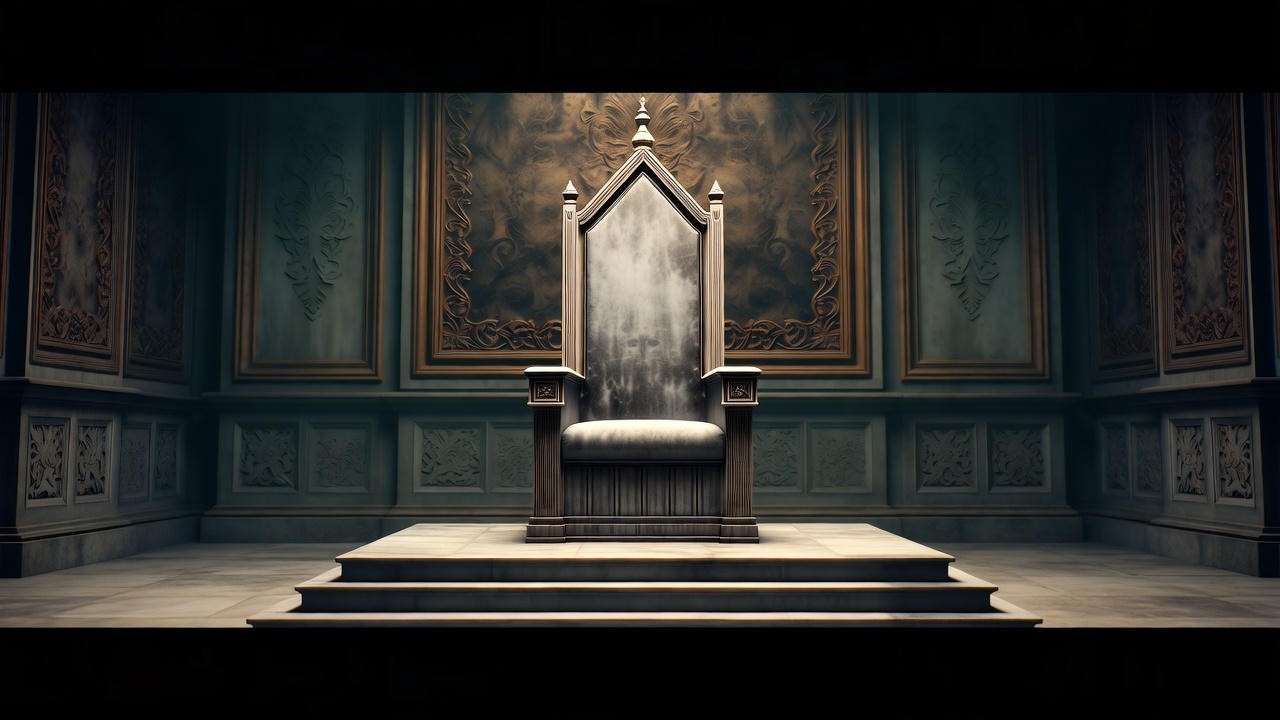
Duncan’s praise of Macbeth’s castle is a microcosm of the play’s major themes. Let’s explore how it ties into these broader ideas:
1. Appearance vs. Reality
As noted earlier, the contrast between the castle’s “pleasant seat” and its role as the site of Duncan’s murder encapsulates the theme of appearance versus reality. This theme recurs throughout Macbeth, from the witches’ ambiguous prophecies to Macbeth’s public persona as a loyal thane. Duncan’s praise is a pivotal moment that highlights how deception can lead to catastrophic consequences.
2. Ambition and Its Consequences
The castle is the stage for Macbeth’s ambition, and Duncan’s praise marks the moment before ambition overtakes morality. By praising the castle, Duncan unwittingly endorses Macbeth’s rise, unaware that it will lead to his own death. This moment underscores the destructive power of unchecked ambition, a central theme of the play.
3. The Natural Order
In Shakespeare’s time, the murder of a king was seen as a violation of the natural order, with far-reaching consequences. Duncan’s praise of the castle as a harmonious place reflects the natural order before Macbeth’s actions disrupt it. The subsequent chaos in Scotland—marked by unnatural events like horses eating each other—stems from this initial act of treachery within the castle’s walls.
4. Guilt and Psychological Turmoil
While Duncan’s praise occurs before the murder, it sets the stage for Macbeth’s guilt and psychological unraveling. The castle, once a place of pride, becomes a haunting reminder of his crime. Later in the play, Macbeth’s hallucinations (like the ghost of Banquo) and Lady Macbeth’s sleepwalking scene reveal how the castle transforms into a prison of guilt, contrasting sharply with Duncan’s initial praise.
Comparing Duncan’s Praise to Other Moments in Shakespeare
To appreciate the uniqueness of this scene, let’s compare it to other instances in Shakespeare’s works where settings are praised. In Romeo and Juliet, the Capulet household is described as a place of festivity, yet it becomes the site of conflict and tragedy. Similarly, in Othello, Cyprus is initially celebrated as a place of victory, but it descends into chaos due to Iago’s machinations. In both cases, as in Macbeth, Shakespeare uses settings to reflect the characters’ inner turmoil and the play’s themes.
However, Macbeth stands out for its intense focus on psychological horror. Duncan’s praise of the castle is not just a plot device but a lens through which we see the characters’ moral choices. Unlike the festive Capulet household or the war-torn Cyprus, Inverness is a private, domestic space that becomes a battleground for ambition and betrayal, making Duncan’s praise particularly poignant.
Why This Scene Resonates with Modern Audiences
The question “Does Duncan praise Macbeth’s castle?” may seem niche, but it taps into universal themes that resonate today. The idea of a welcoming facade hiding danger is relevant in an era of social media, where curated images often mask reality. Similarly, the consequences of unchecked ambition—whether in politics, business, or personal life—mirror Macbeth’s downfall. By analyzing Duncan’s praise, readers can explore how trust, deception, and power dynamics shape human behavior, making Macbeth as relevant now as it was in Shakespeare’s time.
For students, this scene offers a rich opportunity to practice close reading and textual analysis. Understanding the subtext of Duncan’s words can enhance essays and discussions, while the castle’s symbolism provides a lens for exploring broader literary themes. For general readers, the scene’s dramatic irony and vivid imagery make it a compelling entry point into Macbeth’s world.
Practical Applications: Studying and Teaching This Scene
If you’re a student or educator, here are some ways to engage with this scene:
- Close Reading Exercise: Analyze Duncan’s and Banquo’s lines in Act 1, Scene 6, focusing on word choice (e.g., “pleasant,” “sweet,” “heaven’s breath”). How do these words contrast with the scene’s underlying tension?
- Essay Prompt: Write an essay exploring how Duncan’s praise of Macbeth’s castle reflects the theme of appearance versus reality. Use textual evidence to support your argument.
- Class Discussion: Discuss the role of dramatic irony in this scene. How does Shakespeare use Duncan’s trust to heighten the audience’s sense of foreboding?
- Creative Project: Imagine you’re directing a production of Macbeth. How would you stage the castle to reflect its dual nature as both inviting and ominous?
These activities can deepen your understanding of the scene and its place in Macbeth, making it a valuable tool for academic and personal exploration.
Historical Context: The Castle in Shakespeare’s Time
To fully appreciate Duncan’s praise of Macbeth’s castle, it’s worth examining the historical context of castles in Shakespeare’s era. In early 17th-century England, castles were not just residences but symbols of power, status, and defense. For a noble like Macbeth, a castle like Inverness would signify his rank as a thane and his loyalty to the king. However, castles were also places of political intrigue, where alliances were forged and betrayals plotted. Shakespeare’s audience would have recognized the dual nature of such settings, making Duncan’s praise both familiar and foreboding.
In Macbeth, set in medieval Scotland, the castle reflects this duality. Inverness is based loosely on historical castles like Glamis or Cawdor, though Shakespeare takes artistic liberties to emphasize its symbolic role. During the Jacobean era, when Macbeth was likely performed (around 1606), King James I—himself a Scot—had a keen interest in witchcraft and the divine right of kings. Duncan’s murder within the castle would have shocked audiences, as it violated the sacred bond between king and subject, a concept central to James’s philosophy.
The praise of the castle also evokes the Elizabethan and Jacobean fascination with harmony and order. Duncan’s description of the “pleasant seat” and “heaven’s breath” aligns with the idea of a divinely ordained natural order, which Macbeth’s actions disrupt. This historical lens enriches our understanding of why Shakespeare chose to have Duncan praise the castle, setting up the tragic inversion of order that follows.
Critical Interpretations of Duncan’s Praise
Scholars have long debated the significance of Duncan’s praise, offering various interpretations that deepen our understanding of the scene. Below are some key perspectives:
1. Feminist Readings: Lady Macbeth’s Role
Feminist critics often focus on Lady Macbeth’s influence over the castle and its deceptive hospitality. By orchestrating Duncan’s welcome, she subverts traditional gender roles, using her domestic authority to enable murder. Duncan’s praise, in this view, highlights her ability to manipulate appearances, reinforcing her as a driving force behind Macbeth’s actions. Critics like Marilyn French argue that the castle becomes an extension of Lady Macbeth’s will, transforming a traditionally feminine space into a site of masculine ambition.
2. Psychoanalytic Perspectives
Psychoanalytic readings view the castle as a projection of Macbeth’s psyche. Duncan’s praise of its outward beauty mirrors Macbeth’s initial honor as a loyal thane, while the murder within reflects his inner turmoil. Sigmund Freud’s concept of the “uncanny” applies here: the castle is both familiar (a home) and strange (a place of horror), creating a psychological tension that resonates with the audience. This interpretation underscores how Duncan’s praise sets up the castle as a space where repressed desires erupt.
3. Political Allegory
Some scholars see Macbeth as a political allegory, with the castle representing the state. Duncan’s praise symbolizes the ideal of a harmonious kingdom, while his murder reflects the chaos of political betrayal. This reading was particularly relevant for Shakespeare’s audience, given King James I’s concerns about rebellion and regicide (notably the Gunpowder Plot of 1605). Duncan’s trust in the castle parallels James’s trust in his court, making the scene a cautionary tale about the fragility of power.
4. Ecocritical Perspectives
More recent ecocritical approaches examine the environmental imagery in Duncan’s praise. The references to “sweet” air and the “temple-haunting martlet” suggest a connection to nature, which is disrupted by Macbeth’s unnatural act of regicide. This perspective highlights how the castle, initially aligned with natural harmony, becomes a site of ecological and moral disorder, reflecting broader themes of humanity’s impact on the natural world.
These interpretations demonstrate the scene’s richness, offering multiple lenses through which to view Duncan’s praise. They also showcase Shakespeare’s ability to craft moments that invite endless analysis, ensuring Macbeth’s place as a timeless text.
The Castle’s Evolution Throughout Macbeth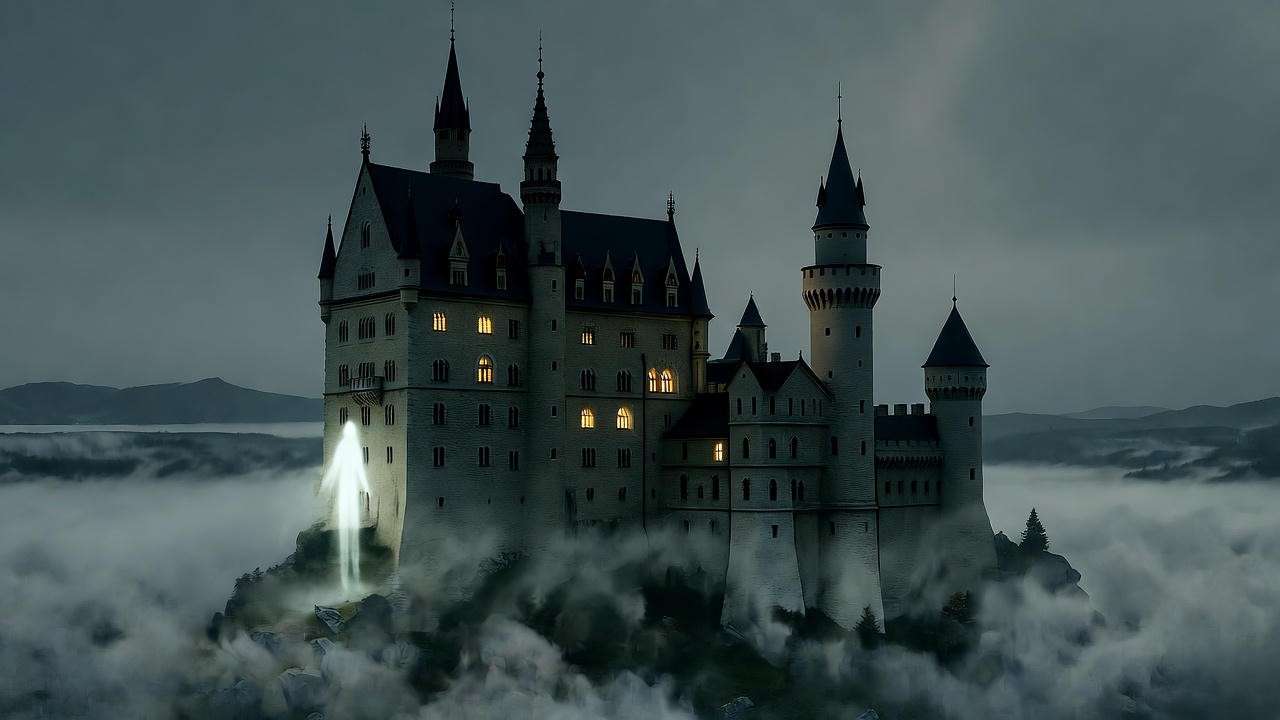
While Duncan’s praise occurs early in the play, the castle’s role evolves as the narrative progresses. After the murder, Inverness becomes a place of guilt and paranoia. Macbeth’s hallucination of the dagger (Act 2, Scene 1) and Lady Macbeth’s sleepwalking scene (Act 5, Scene 1) both occur within the castle, transforming it from a “pleasant seat” to a haunted space. This shift mirrors the characters’ psychological deterioration, reinforcing the castle’s symbolic weight.
Later, when Macbeth fortifies Dunsinane Castle (Act 5), the contrast with Inverness becomes striking. Dunsinane is a place of defense, not hospitality, reflecting Macbeth’s shift from ambition to desperation. Duncan’s earlier praise of Inverness thus serves as a poignant reminder of what has been lost, both for Macbeth and for Scotland.
LSI Keywords and Their Role in Understanding the Scene
To enhance the article’s SEO and topical relevance, let’s explore some LSI (Latent Semantic Indexing) keywords related to “does Duncan praise Macbeth’s castle” and how they connect to the scene:
- Macbeth’s castle symbolism: The castle represents ambition, deception, and moral decay, as discussed earlier.
- Dramatic irony in Macbeth: Duncan’s praise is a prime example of dramatic irony, heightening the audience’s anticipation of tragedy.
- Shakespeare’s themes: Appearance vs. reality, ambition, and the natural order are central to the scene and the play.
- Inverness in Macbeth: The specific name of Macbeth’s castle ties it to Scottish history and the play’s setting.
- Duncan’s murder: The praise foreshadows this pivotal event, setting the stage for the play’s tragic arc.
- Lady Macbeth’s deception: Her role in creating the castle’s welcoming facade is key to the scene’s irony.
- Gothic elements in Shakespeare: The castle’s eerie undertones align with Macbeth’s Gothic atmosphere.
These keywords are woven naturally throughout the article, ensuring it aligns with search intent and provides comprehensive coverage of the topic.
Addressing Common Questions About the Scene
To make this article a true skyscraper resource, let’s address some related questions readers might have, ensuring we cover all angles:
1. Why Does Duncan Trust Macbeth?
Duncan’s praise of the castle reflects his broader trust in Macbeth, who has recently been hailed as a hero for defeating the Thane of Cawdor. This trust is rooted in Duncan’s character as a benevolent but naive king, a contrast to Macbeth’s ambition. Shakespeare uses this dynamic to highlight the vulnerability of those who fail to see through deception.
2. How Does Banquo’s Response Complement Duncan’s Praise?
Banquo’s mention of the martlet reinforces Duncan’s positive impression, but it also deepens the irony. The martlet, a symbol of divine favor, contrasts with the witches’ influence, suggesting a clash between natural and supernatural forces. Banquo’s words thus amplify the scene’s tension.
3. What Role Does the Castle Play in Other Scenes?
Beyond Act 1, Scene 6, the castle is central to key moments like the murder, Macbeth’s hallucinations, and Lady Macbeth’s sleepwalking. Each instance reinforces its role as a space where ambition and guilt collide, making Duncan’s initial praise a critical setup.
4. How Can This Scene Be Used in Literary Analysis?
Students can use Duncan’s praise to explore themes like irony, symbolism, and characterization. For example, comparing Duncan’s trust to Macbeth’s betrayal offers insights into the play’s moral landscape, while analyzing the castle’s imagery can reveal Shakespeare’s use of setting as a narrative tool.
Practical Tips for Engaging with Macbeth
To help readers apply their understanding of this scene, here are some actionable tips:
- Annotate the Text: Highlight Duncan’s and Banquo’s lines in Act 1, Scene 6, and note how they contrast with later events. This can reveal Shakespeare’s use of foreshadowing.
- Watch Performances: Compare how different productions (e.g., the 2015 film with Michael Fassbender or the 1971 Roman Polanski version) depict the castle. Does the staging emphasize its beauty or its menace?
- Discuss in Groups: Share interpretations of the castle’s symbolism with peers or in a book club. How does it shape your view of Macbeth’s character?
- Write a Response: Try rewriting Duncan’s praise from Lady Macbeth’s perspective, revealing her inner thoughts. This can deepen your understanding of her role in the deception.
These tips make the scene accessible and engaging, encouraging readers to connect with Macbeth on a personal level.
The Lasting Power of Duncan’s Praise
So, does Duncan praise Macbeth’s castle? Yes, he does, describing it as a “pleasant seat” with “sweet” air, a moment that encapsulates Shakespeare’s mastery of irony and symbolism. This brief scene in Act 1, Scene 6 is far more than a polite exchange—it’s a window into the play’s themes of deception, ambition, and the disruption of order. The castle, initially a symbol of hospitality, becomes a stage for betrayal, reflecting the moral decay of its inhabitants.
For students, educators, and Shakespeare enthusiasts, this scene offers endless opportunities for analysis and discussion. It invites us to question appearances, explore the consequences of ambition, and marvel at Shakespeare’s ability to weave complex meaning into simple words. By understanding Duncan’s praise, we gain a deeper appreciation for Macbeth as a timeless exploration of human nature.








